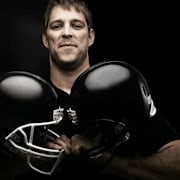Unlocking Peak Performance: Lessons from Derin McMains on Athletes, CEOs, and 9-to-5 Success

I spoke with Derin McMains about a challenge that’s as relevant in corporate boardrooms as it is on the playing field: how do you measure and sell performance to people who work a nine-to-five job? For athletes, performance is tangible, you get hits, score points, or win games. But for employees or executives in the corporate world, performance is often harder to define.
Derin, who has built mental performance programs for professional athletes and top organizations, shared his experiences transitioning from sports to the corporate world. His insights reveal just how different the mindsets can be, and what it takes to bridge that gap.
When Derin first started working with CEOs and corporate teams, he expected to find the same level of drive he had seen in elite athletes. One of his earliest experiences was working with a founder and CEO who bootstrapped their company for seven years, building it into a multi-billion-dollar business. The intensity and commitment this leader brought to the table mirrored what Derin had seen in the greats of professional sports.
From that experience, Derin assumed corporate culture as a whole would follow suit. But when he dove deeper into the corporate world, the reality was starkly different. “The first two people I met were after it,” Derin explained. “Then I jumped in, and I couldn’t have been more wrong. People were leaving the company, and I was thinking, ‘Wait, what do you mean they left for another job? You can just do that?’”
This contrast between professional athletes and corporate employees highlights a key challenge: how do you sell performance when the stakes and measurements are so different? Athletes live in a world of accountability. A missed shot, a botched play, or a lackluster performance is visible to everyone. There’s no hiding from the scoreboard.
In the corporate world, performance is often more subjective. Goals might be tied to quarterly results, team collaboration, or intangible leadership skills. Unlike athletes, corporate employees don’t always get immediate feedback on whether they’re “winning.” This lack of a visible scoreboard makes it harder to stay motivated and focused on improvement.
Derin’s approach to bridging this gap starts with redefining what success looks like. Instead of focusing on immediate outcomes, like revenue or promotions, he emphasizes the importance of small, consistent wins. This process-driven mentality is something he’s seen transform athletes, and it’s just as relevant in the business world.
For leaders, Derin suggests creating a clear framework for measuring performance. Transparency around goals and expectations provides employees with something concrete to aim for. Just like an athlete knows their stats, employees need to know how their contributions are being measured and valued.
Beyond metrics, Derin also believes performance hinges on purpose. Elite athletes, founders, and high-performing CEOs don’t just work hard - they work with intention. They know why they’re chasing their goals, and that “why” fuels their drive.
For employees, connecting day-to-day tasks to a larger purpose can have the same effect. Leaders who can articulate the mission of the team and show how every individual contributes to that mission will find it easier to inspire their people to perform at their best.
Derin’s journey from the field to the boardroom shows how vital it is to adapt strategies for different environments. Selling performance to a nine-to-five audience requires leaders to understand their people, create clear systems for measuring success, and connect tasks to a meaningful purpose.
Whether you’re coaching athletes or running a business, the principles remain the same: performance thrives when it’s tied to clarity, accountability, and a vision that inspires.
Tune into Power Athlete Radio to hear more from Derin McMains about performance, leadership, and the mindset required to excel in any arena.
